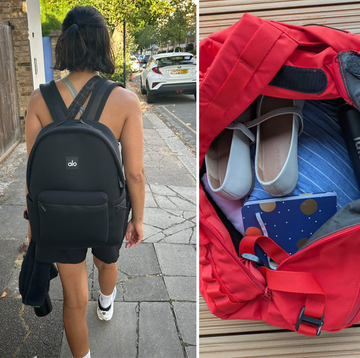Pharmacies are closing at the rate of more than eight a week, according to a new report from Healthwatch England, the NHS patient champion. Freedom of information requests revealed that 436 pharmacies closed permanently in England last year. There were a further 13,863 temporary closures due to lack of staffing – that's the equivalent of 142 working days lost. People in coastal, rural and deprived areas and older people are suffering most from the closures.
A map of pharmacy closures can be found here.
"It’s clear that rising levels of closures risk leaving some areas of the country as pharmacy deserts, with people having to travel much further to get access to vital services," said Paul Rees, the chief executive of the National Pharmacy Association (NPA).
What to read next
"Community pharmacies act as the front door to the NHS. If people lose access to them it will force more patients into the eight o’clock scramble at their GP surgery, putting pressure on the rest of our NHS system," he says.
What can I do if my pharmacy is closing?
"Patients are advised to collect any outstanding prescriptions and medicines before the closing date," says Dr Nick Thayer, head of policy at the Company Chemists’ Association. "Then you need to change the pharmacy you’ve nominated to dispense your prescription. This can be done in one of three ways – by asking the pharmacy you want to use in future to change your nomination, changing your nominated pharmacy yourself via the NHS app, or asking your GP surgery to change it for you."
It’s your choice which pharmacy you want to use in future – you can find your nearest by entering your postcode at NHS Find a Pharmacy.
Once you’ve changed your nominated pharmacy, all your future prescriptions will automatically be sent there, although your new pharmacy won’t have records of your previous medicines and it will take time to build up that information.
You can also nominate an online pharmacy, such as Pharmacy2U, which can send your medicines in the post and provide advice remotely.
Heathwatch is calling for better signposting of pharmacy closures and the immediate alternatives for frustrated patients. "However, in the longer term, action must be taken to address staff shortages and unequal access. A national evaluation of pharmacy funding and the size, role-mix and distribution of the pharmacy workforce is necessary to improve planning of pharmacy services," says chief executive Louise Ansari.
Why are pharmacies closing?
The majority of the services pharmacies provide are NHS-funded and over 90% of their income comes from this. But, according to the NPA, there has been a 40% funding reduction, and inflation, plus the increasing costs of dispensing medicine, has pushed many to the brink.
"Local pharmacies are experiencing a real crisis," says Paul Rees, chief executive of the NPA. "When government funding no longer covers the costs of the nation’s medicines, pharmacies are left subsidising the NHS from their own pockets and dispense medicine at a loss."
Pharmacy First scheme fears
There is some optimism that community pharmacies could be better funded in the future under the new government but, in light of the latest HealthWatch findings, there are also concerns over resources.
“Staff shortages, the key driver of permanent and temporary closures, call into doubt the potential of Pharmacy First, meaning people can’t get the advice, care and medications they need and when they need them”, explains Louise Ansari.
Pharmacy First is the government’s drive to reduce the strain on overworked GPs through pharmacists treating what it hopes will be millions of patients a year for seven minor ailments such as a sore throat, earache, infected insect bite or sinusitis.
As well as dispensing medicine, pharmacists offer services such as blood pressure checks and vaccinations. Earlier this year, the Pharmacy First scheme was launched in England, which means pharmacists can now give advice and prescribe antibiotics, if needed, for seven common conditions, including a sore throat, earache and sinusitis, without the need to visit a GP. To help with these increased demands, the Department of Health and Social Care says £645m has been allocated over two years to help community pharmacies.
However, Sukhi Basra, a community pharmacist in London for the past 27 years, says it’s a double-edged sword: "It’s amazing that we are finally being recognised as clinicians. But if I’m carrying out Pharmacy First consultations, then I’ll need to employ
a second pharmacist to do the job I was doing dispensing medicines. Because the Government isn’t funding the full cost of the medicines we dispense, it means I’m doing more work just to try to make up for the money that has been taken away from us."
The knock-on effects of pharmacy closures
According to figures from the Pharmacy Advice Audit 2022, almost half of patients said that if they didn’t have easy access to a pharmacy, they would visit their GP instead.
Dr Nick Thayer explains: "If a pharmacy closes, patients will have to visit another, which is likely to be further away. This can be costly and time-consuming, and patients may try to access other parts of the NHS, such as their GP practice or A&E, instead. Some patients may not seek treatment at all, which could lead to a deterioration in their symptoms."















